Air filters are essential parts of your HVAC system since they are responsible for cleaning the air circulating in your home. So if you have a Carrier HVAC system and you're wondering what MERV rating they recommend, we researched for that, and here is what we gathered.
The MERV rating ranges from 1 to 20, with 20 giving the best filtration. However, for people with allergies or those who are more susceptible to airborne particles, a rating of 12-16 MERV is recommended to eliminate a high proportion of these particles.
Read on as we discuss what is a MERV rating and how to choose what works best for you.
In addition, we'll also dive into the importance of air filter maintenance and its benefits, how often should you change your air filters, and the factors affecting how frequently you should change them.
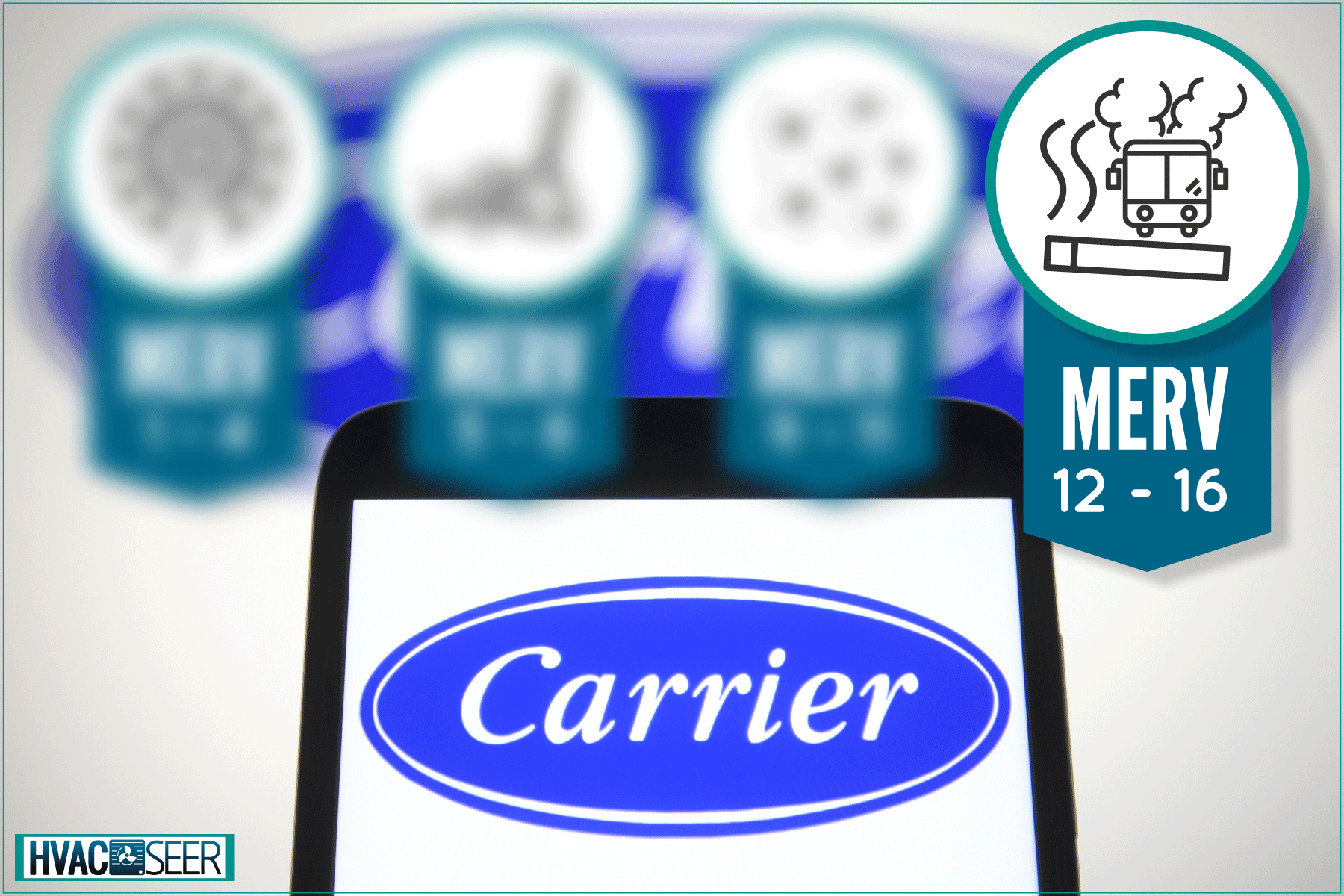
What Is A MERV Rating?
MERV ratings indicate how effective an air filter is at reducing airborne particles and pollutants. The minimal particle size that a filter can catch determines its rating.
To choose what MERV rating should work best for you, here is a guide on air filter MERV ratings and what they can filter:
MERV 1-4
Filters with these ratings are ineffective at trapping hazardous particles in your home's air. Because they are flat rather than pleated, there is less room for capturing more particles. They also only trap particles larger than 10 microns in size, such as pollen, dust mites, and carpet fibers.
These filters' primary function is to give little dust protection to your system. Therefore, they must be replaced more frequently than other filters.
MERV 5-8
A medium-quality filter with this rating is sufficient for most houses. Animal dander, mold spores, and dust mite droppings, all of which are extremely allergic, are captured in particles as tiny as 3 microns.
MERV 9-12
Filters with MERV ratings of 9 to 12 are nearly as effective as genuine HEPA filters at eliminating hazardous particles from indoor air, making them suitable for houses with residents who suffer from allergies, asthma, and other respiratory disorders.
Legionella and humidifier dust are trapped by these high-quality filters, which catch particles as small as one micron. Without major system modifications, these filters are the optimum filters for a household HVAC system.
MERV 13-20
These incredible filters, which can trap viruses, germs, and carbon dust, are commonly found in commercial HVAC systems like those found in manufacturing plants and hospitals.
Unless it has been previously upgraded for a higher-efficiency filter, a residential system will not take filters with MERV values of more than 12.
What MERV Filter Rating Is Best To Use In Your Home?
Higher is not necessarily better when choosing the proper filter for your application. Using an air filter with a MERV rating higher than the one recommended by your furnace or air conditioner can reduce its efficiency.
More highly rated air filters have smaller pores, which produce resistance to airflow. If the filter is used in an HVAC system that isn't built to manage this resistance, it can reduce the system's efficiency, reduce indoor air quality, and put a strain on the fan.
On the MERV scale, filters for residential furnaces range from 4 to 12. Although a simple MERV 4 filter will be the cheapest, it will not catch certain microscopic particles, such as dust mites and pet dander, that may be present in your home.
If your family has health or allergy difficulties, you should seek a MERV 11 or greater high-efficiency filter. However, for most families, a MERV 7 or 8 filter may be the best compromise between performance and affordability.
Why Is Air Filter Maintenance Important?
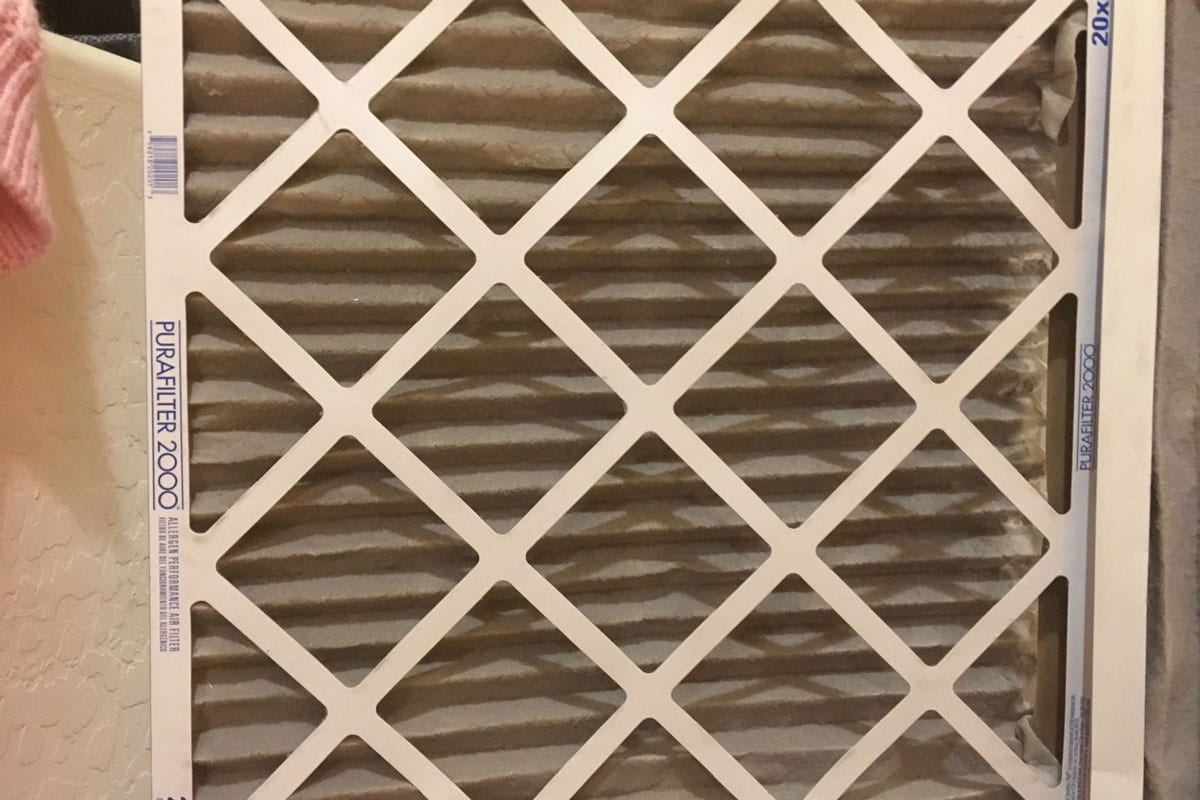
Air filters prevent airborne contaminants from entering the system, helping to keep your HVAC system components clean and the air you and your family breathe clean.
To emphasize its importance, here are reasons why you should not ignore your air filters:
Affects Your Energy Bills
A blocked or dirty air filter reduces airflow through the system. Because the system needs to work more to keep you comfortable, it uses more electricity, which may result in higher energy costs.
Compromise Your Level Of Comfort
Knowing how regularly to change your air filters can affect your comfort. Your HVAC system may strive to keep you comfortable if your air filter becomes blocked or ignored.
Contribute To The Rapid Degradation Of Your HVAC System
Because a clogged, dirty filter forces your fan motors and other components to work harder, skipping routine filter cleaning can shorten the life of your HVAC system.
What Are The Benefits Of Regularly Maintaining Your Air Filters?
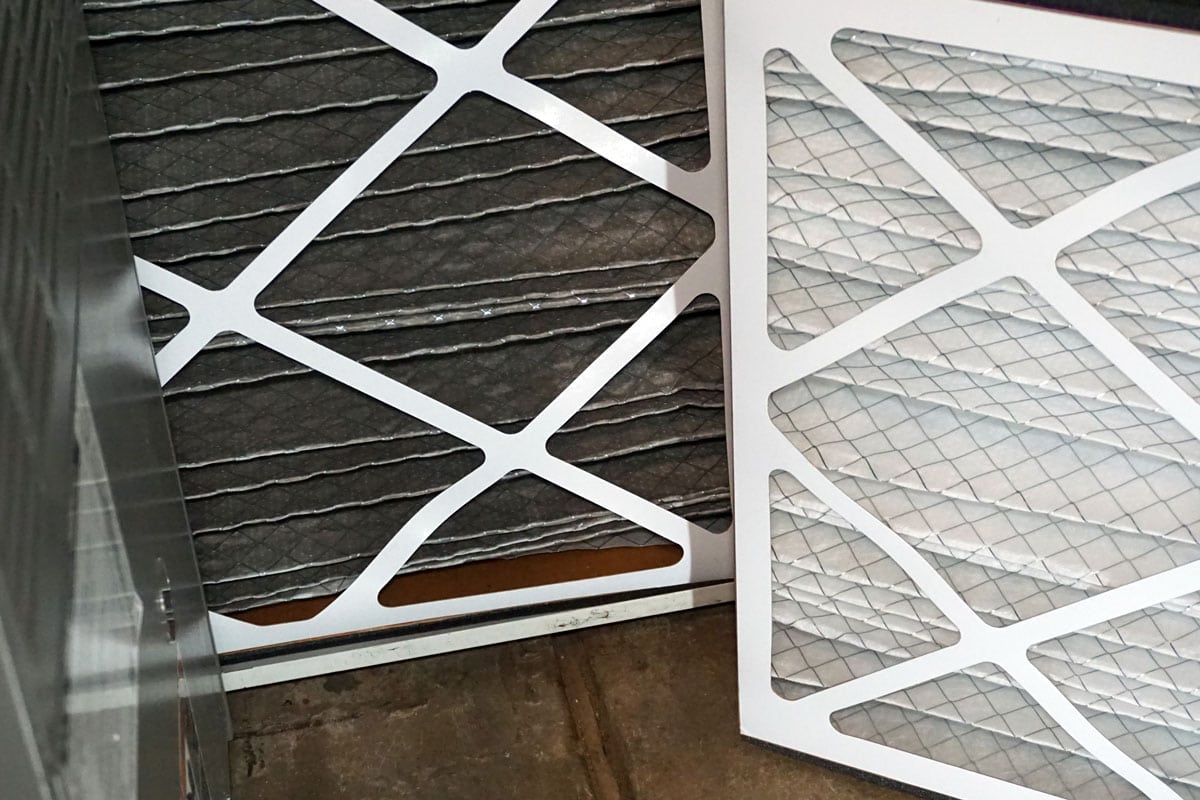
Here are some benefits you can enjoy when you religiously maintain your air filters:
Extends The Life Of Your HVAC System
Regular filter maintenance can help your equipment breathe easier and last longer. One of the biggest causes of HVAC failure is dirt and lack of maintenance, and extending the life of your unit begins with a clean filter.
Improved Energy Efficiency
If you see an increase in your electricity bills and believe there is nothing you can do about it, changing your air filter is a simple first step.
According to the Department of Energy, replacing a dirty, clogged filter can increase the efficiency of your system by 5 to 15%.
Better Air Quality
When you maintain your air conditioner filter clean, your home will smell better, have less dust, and even have fewer allergens. This can help your family breathe easier and feel better.
When you replace filters regularly, you may find yourself dusting less frequently in your home.
Maintains Ductwork Cleanliness
Keeping air filters clean can help to keep ducting clean since there are fewer particles present in the air that is delivered to your home.
What Factors Affect How Frequently You Should Change Your Air Filters?
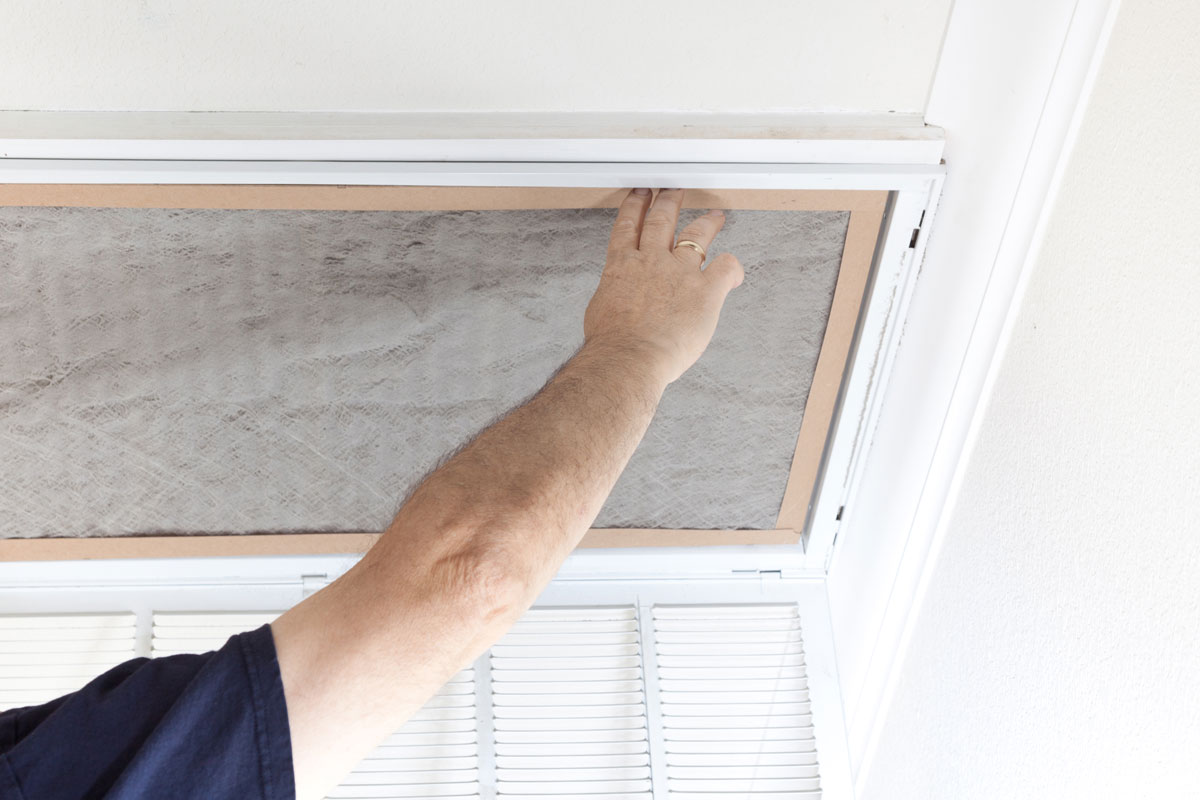
Because an air filter is one of the major defenses against pollutants and allergies in the home, it's critical to understand how your environment and habits affect the filter's replacement schedule.
These are the factors that affect the frequency on which you should change your air filters:
Air Quality
Your activities and the location of your home both influence your indoor air quality. Indoor activities like smoking, cooking, burning scented candles, using a stove, and using personal care and cleaning agents are examples of things that can degrade indoor air quality.
In addition, the air quality of your outdoor environment can also influence your indoor air quality.
Respiratory Problems
If you have allergy sufferers or asthmatics in your house, they are more susceptible to harm from airborne particles like dust mites, pollen, and mold spores can make them more susceptible. That is why you should change your air filter once a month.
Pets
With the presence of pet dander and hair, the volume of airborne contaminants that an air filter must catch rises. Furthermore, pets can bring bacteria, viruses, insects, dirt, and dust into the house with them.
If you only have one pet at home, you should keep the frequency of filter checks and replacements reasonably regular.
Area Of Your House
If you have a larger house, your HVAC system will circulate more air, trapping more airborne particles in its filter. Thus, you should check, clean, and replace your home's air filters more frequently compared to houses with small areas.
Frequency Of Using The Unit
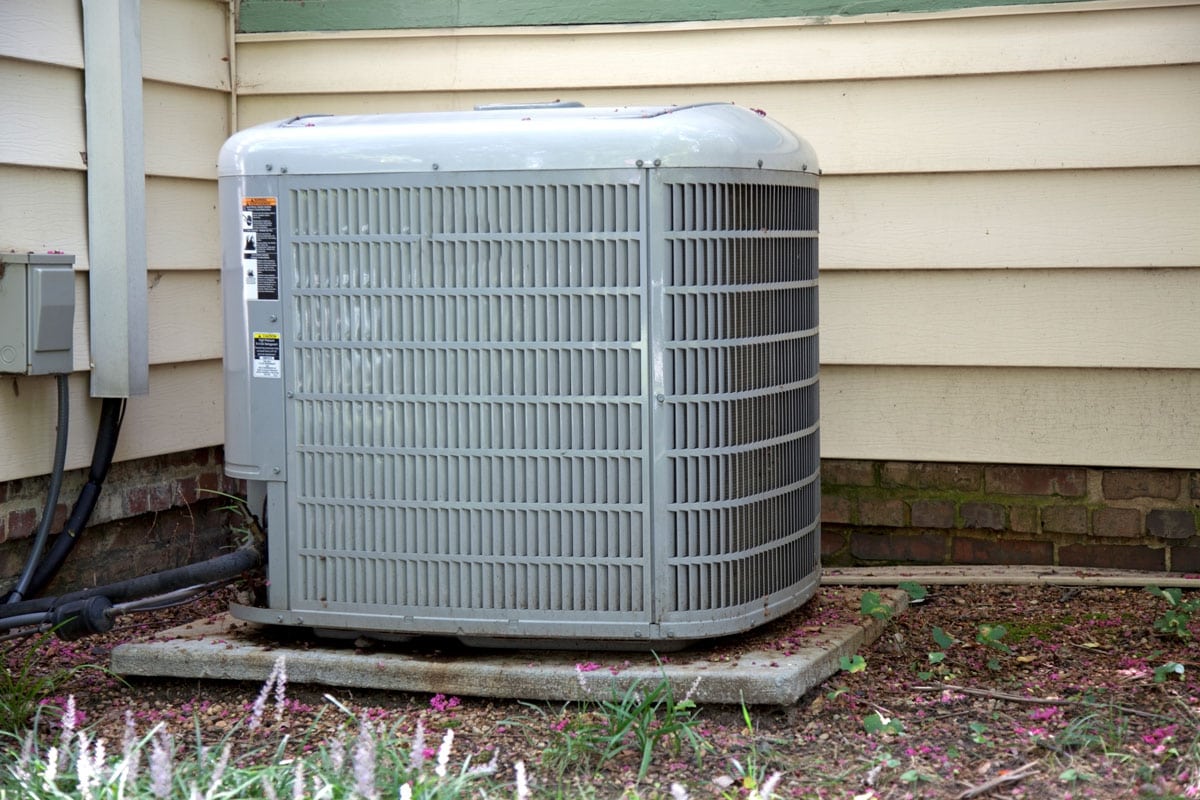
The more frequently you use an HVAC system, the more it forces air through the air filter, stirring up and trapping more pollutants.
In the same manner, you don't need to replace an air filter as regularly if the residence is in a mild environment and you only seldom use your unit.
It's ultimately up to you how often you inspect, clean, or replace the air filter in your HVAC system. Understanding all of the aspects will assist you in making an informed decision.
Final Thoughts
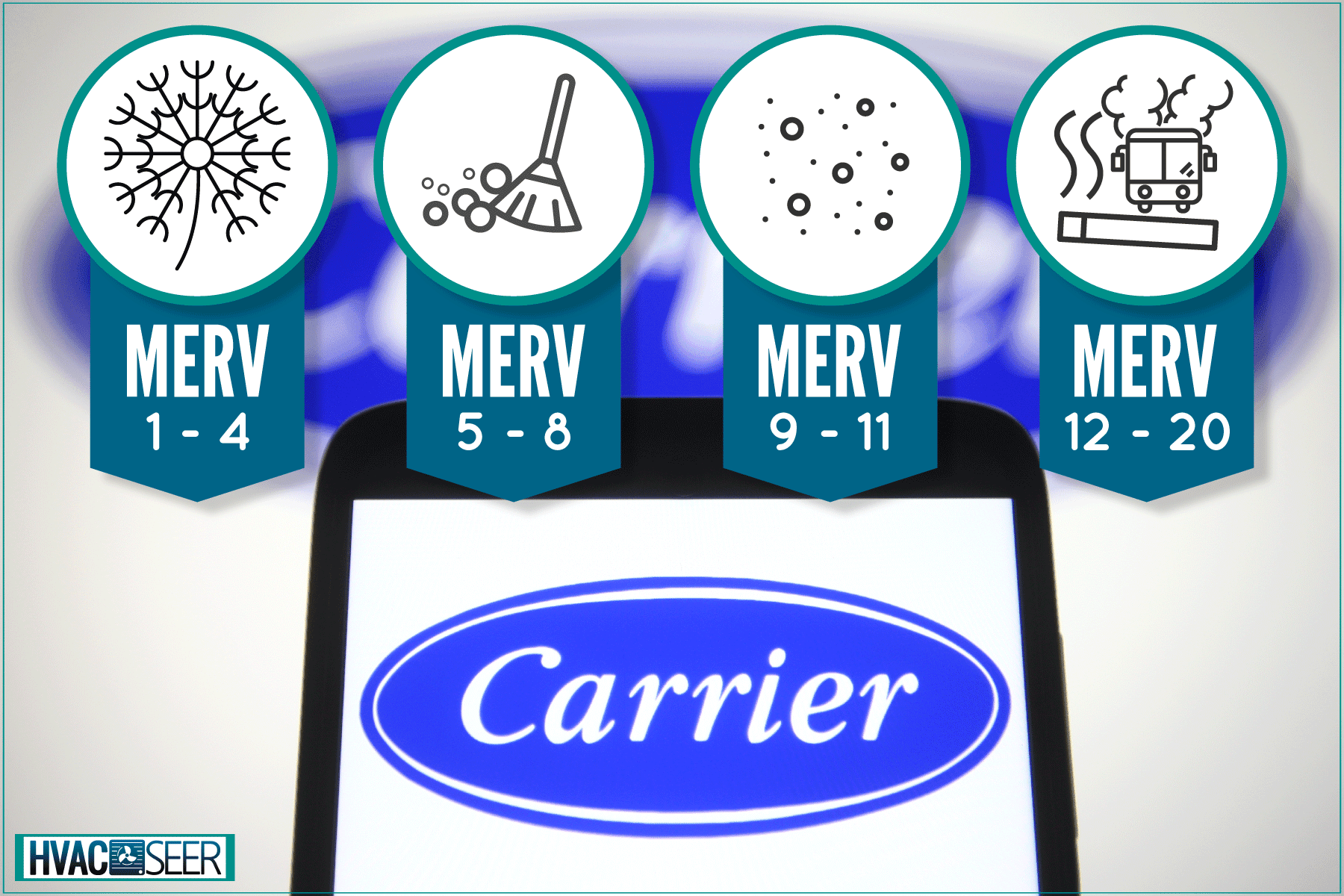
Although MERV ratings of air filters range from 1 to 20, it is recommended that the best rating to use for residential homes is either 7 or 8. However, for people with respiratory problems, it is recommended to have a MERV filter rating of 12-16.
If you want to know what types of filters you can utilize, you can check this article: "6 Types Of Air Filters For Your Home."
And if you want to know how many air filters your house needs, check this article: "How Many Air Filters Does A House Have? [And Where Are Filters Located]."
You can check these related articles to learn more about Carrier air conditioners:
